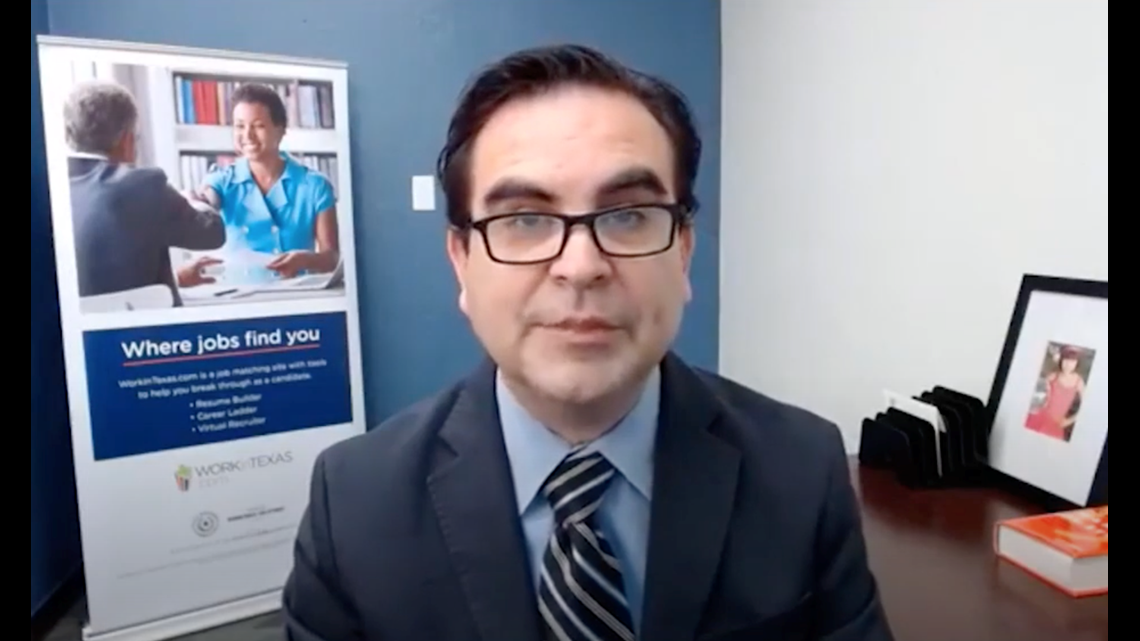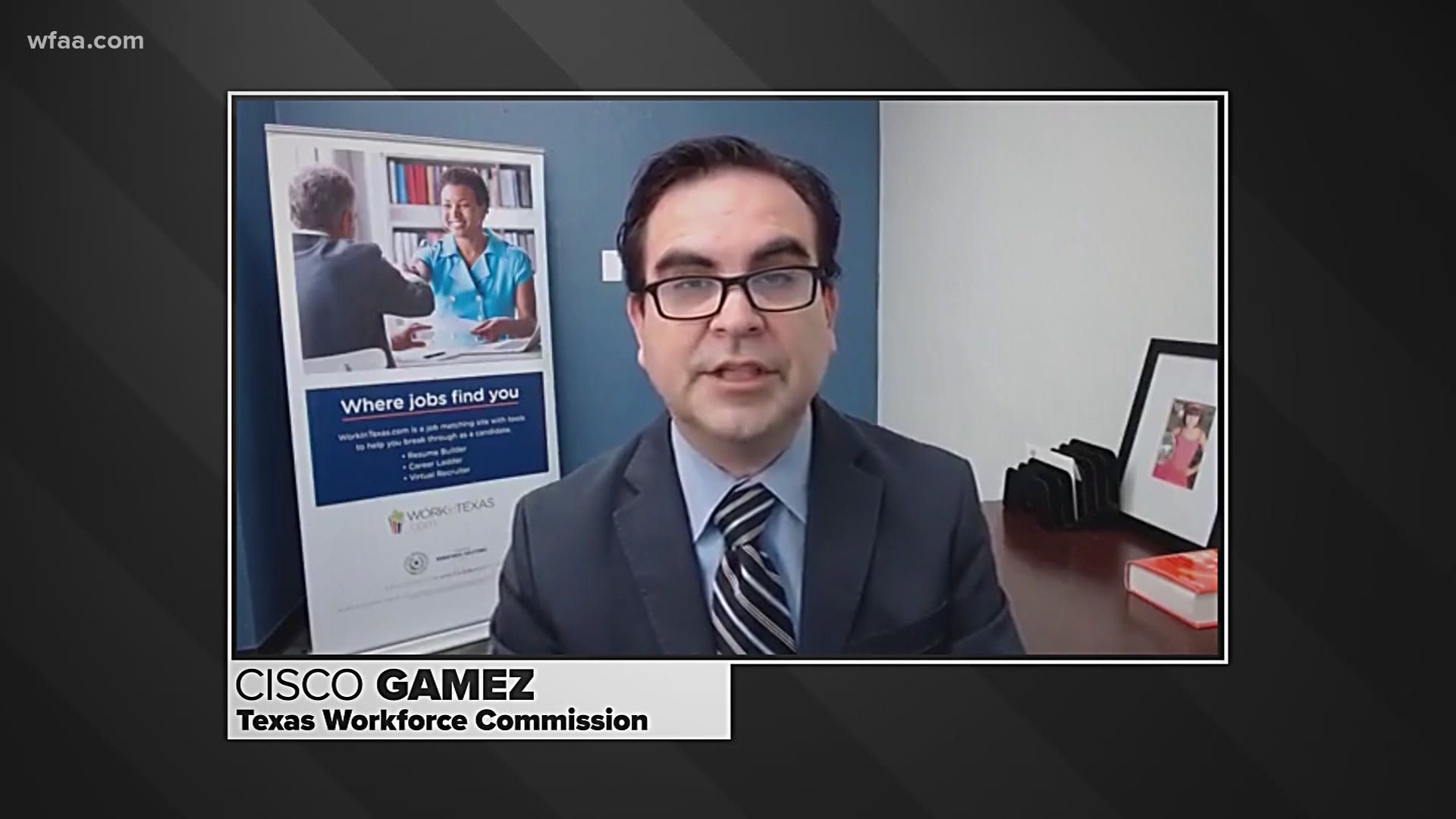DALLAS — With more than 33.5 million Americans out of work, many are desperately trying to get unemployment benefits.
Scott Collins is not one of them. He has never applied for unemployment benefits.
Yet Collins received a notice from the Texas Workforce Commission about his application for unemployment benefits. It included his name, employer and social security number.


“Yeah, so it was really pretty scary,” said Collins, who does not know who filed on his behalf or how the scammer got his personal information “But I’m pretty sure I’m not alone in this,” he said.
He’s right.
The Texas Workforce Commission is dealing with a spike in fraudulent unemployment claims. The commission has identified 396 fraudulent claims since Jan. 1, with 58% of them happening in April.
“Historically, when disaster unemployment insurance is made available TWC usually sees an increase in fraudulent claims,” said commission spokesman Cisco Gamez.


“We do have tools in place to detect high-risk, suspicious claims and we work with employers to verify and check those," Gamez said. "So whenever possible we are making attempts to minimize the amount of fraud that potentially could happen."
Gamez said the TWC has a dedicated email address to report fraud: TWC.fraud@TWC.state.tx.us.
But Collins says more should be done.
“The phones aren't being answered. I tried five different numbers at TWC and every single number went straight to a busy signal,” Collins said.
“People are taking advantage of the situation that is overwhelming the system and obviously the system wasn't ready for the looters to sneak in through the back door," he said.
So what's the number one thing you can you do to keep from becoming a victim of identity theft?
“Take really good care not to click on links (you) don't know or trust to be legit and not to visit websites (you) don't know or trust to be legitimate,” said John Ansbach, a Dallas-based information and cyber security expert who works for Aon Cyber Solutions, a global security firm.
“That's really good hygiene, but really important right now, with so much scamming and theft activity that's happening,” Ansbach said.
To find out more about what you can do to protect your identity during the Covid-19 crisis, here's more from John Ansbach:
Got a question or a tip? Email: investigates@wfaa.com
More from Investigates:
- Videos show long-term caregivers failing to properly wear masks while caring for 92-year-old woman
- Here's where the $350 billion meant for small businesses really went
- 2 residents of Arlington retirement community say management discouraged people from getting tested for COVID-19
- Denton state school employee who survived COVID-19 says he's 'just happy to be alive'
- Former Denton living center employees say facility put their health at risk during coronavirus outbreak


